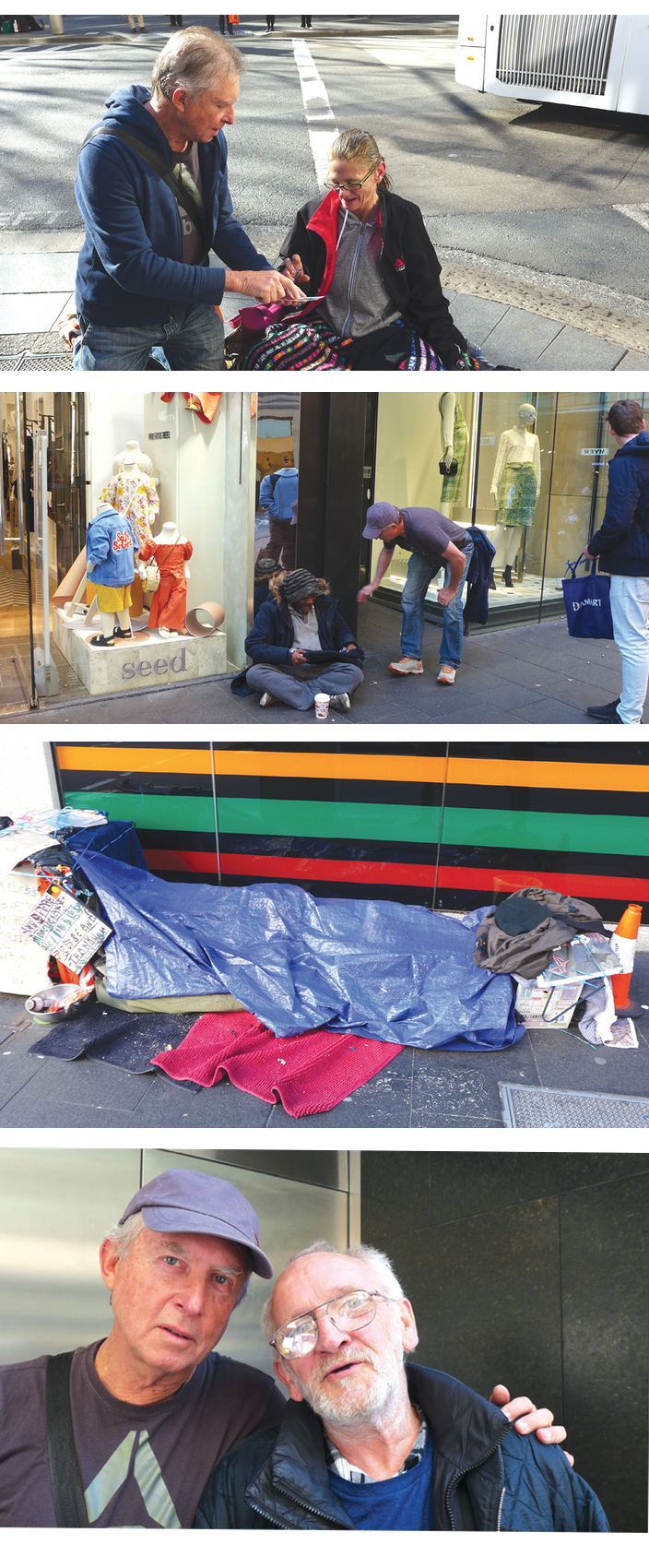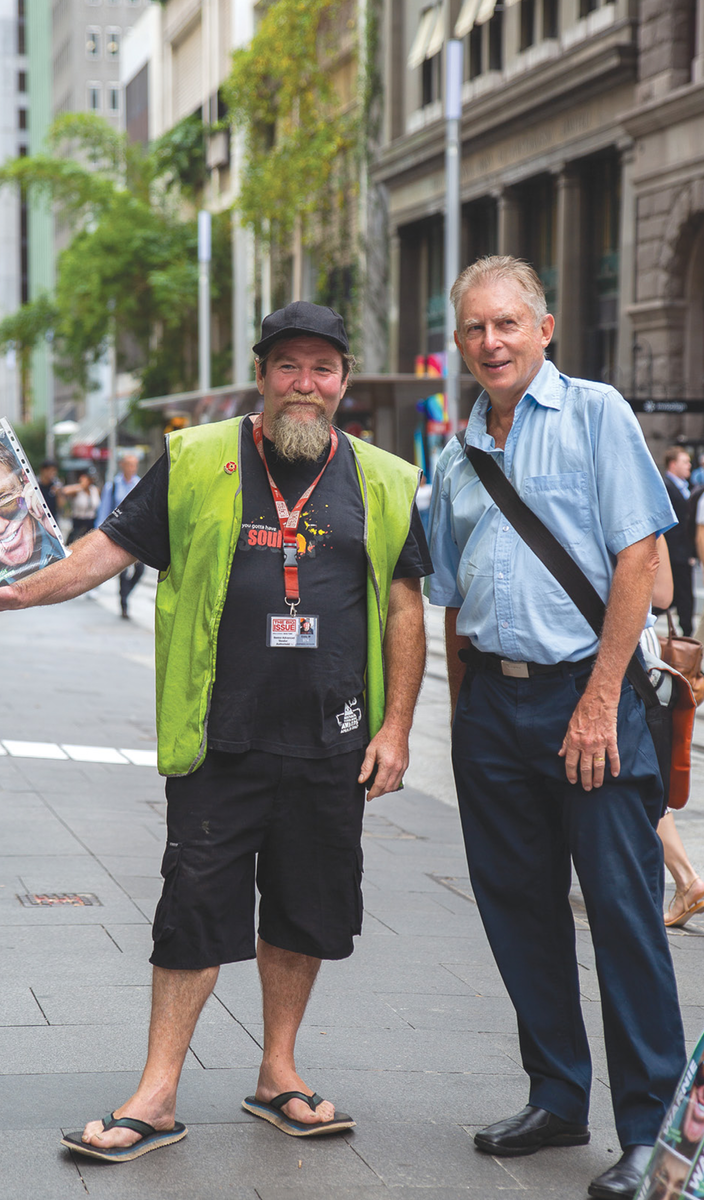
What can students from a Catholic college on the leafy north shore learn from the homeless, asks journalist Sue Osborne.
Plenty, says retired teacher and IEU member Ralph Kershler, who has been taking students on ‘street retreats’ for 35 years.
I joined Ralph and a small group of Year 10 students from St Leo’s Catholic College Wahroonga on a crisp winter’s day in Sydney, to meet the people many prefer to ignore.
Ralph started at the college in the 1980s as a ‘regular teacher’, became the Religious Education Coordinator and now, at 73, he’s a self-described “nobody” who, every fortnight, takes students who volunteer for the experience into the city’s hidden side.
He also takes teachers and administrators from the college and the Broken Bay Catholic Schools Office on his street retreats, as well as his own children and grandchildren. It’s the legacy of his work that keeps Ralph motivated.
“I had a former student ring me the other day – she’s now 45 and a doctor. She said she always prioritises the homeless at her practice because of her experience of the street retreat.”
Our group’s first meeting was with one of Ralph’s regulars called Eddie, who hadn’t been around for a while.
“I’ve been seeing the same characters since 1987,” Ralph said. “Sometimes they disappear for a few weeks and then suddenly they’re back. You wonder what’s happened to them in the meantime.”
Ralph is relieved to find Eddie in his usual spot on Martin Place, where he has been selling The Big Issue for about 10 years.
Turns out he’s had a stint in hospital and was released into a hostel. But Eddie couldn’t settle at the hostel, sharing a room with a man “who snored like a chainsaw”.
He was glad to be back in his regular home for the past decade, under the eaves of one of Sydney’s iconic buildings.
“It’s a good part of town, I’ve got a good view of the Botanic Gardens, my mate’s there, it’s safe,” Eddie said. He describes his patch of outdoor concrete with the pride most people reserve for their million-dollar properties.
Originally from Auckland, Eddie said he used to work in his brother’s business, selling swimming pools and spas.
“My brother was a rich lister, the business was worth $65 million,” Eddie said.
Eddie was involved in an industrial accident that almost led to the amputation of one of his hands, then his brother’s business went belly up. Eddie went to England and started “drinking like a maniac”. He finally ended up on the streets of Sydney.
Ralph said wet weather seemed to trigger Eddie’s binges.
Eddie is generous with his time for the students, happy to share his street philosophy in exchange for a stick of deodorant and some cash.
“Every day’s an adventure,” Eddie said. “You never know who you’re going to meet. I’m happier now than I was working for my brother, that’s weird isn’t it?”
Eddie regards having no “overheads” – rent – as a positive. “I’ve hit rock bottom plenty of times; you’ve got to remember there’s always a better day around the corner,” he said.
“Life’s not supposed to be easy, it’s a roller coaster you’ve got to ride. Do stuff that you want to do and makes you happy. Travel. Don’t drink. Don’t smoke.”
Ralph’s Street Retreat strongly intersects with the Groups in Context section of the Community and Family Studies syllabus, which looks at specific groups in the community such as the homeless, and how they relate to society and how society reacts to them. It could tie in with many other courses, such as Legal Studies, Society and Culture, Economics, Studies of Religion and others.





































































































































